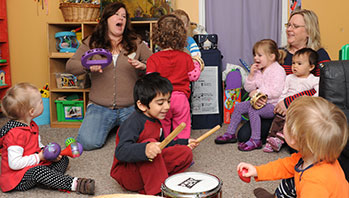- flower
- grow
- plant
- soil
MA Standards:
English Language Arts/Speaking and Listening/SL.PK.MA.1a: Observe and use appropriate ways of interacting in a group (e.g., taking turns in talking, listening to peers, waiting to speak until another person is finished talking, asking questions and waiting for an answer, gaining the floor in appropriate ways).
MA Draft STE Standards:
Life Sciences/Ecosystems; Biological Evolution/LS2/4.B: Using their experiences in the local environment and other evidence, raise and discuss questions about the basic needs of familiar organisms and how they might meet their needs. (Clarification statement: basic needs include water, food, air, shelter, and light for most plants)
Head Start Outcomes:
Social Emotional Development/Self-Regulation: Follows simple rules, routines, and directions.
Language Development/Receptive Language: Attends to language during conversations, songs, stories, or other learning experiences.
PreK Learning Guidelines:
English Language Arts/Language 1: Observe and use appropriate ways of interacting in a group (taking turns in talking; listening to peers; waiting until someone is finished; asking questions and waiting for an answer; gaining the floor in appropriate ways).
English Language Arts/Reading and Literature 12: Listen to, recite, sing, and dramatize a variety of age-appropriate literature.
Sing Together: “Dig the Earth”

© Commonwealth of Massachusetts, Department of Early Education and Care (Jennifer Waddell photographer). All rights reserved.
STEM Key Concepts: Plants need water and sunlight to grow
ELA Focus Skills: Phonological Awareness (Rhythm, Rhyme), Vocabulary
Remind children that all plants need water, food, some sunshine, and something to grow in, such as soil. Ask, How do you think outdoor seeds and plants get the water they need to grow? (rain) Explain that the rain falls from the clouds in drops and waters the seeds and plants.
- Tell children that you are going to sing a song about all the things plants need to grow. Sing “Dig the Earth” as you act out the motions.
- Invite children to join you as you sing the song a second time.
- Encourage children to make new verses by substituting the word seeds in the second line with a particular seed or bulb name. For example: “Then we plant our <tulip bulb>.” Then substitute the word flowers in the last line with the same seed or bulb. For example: “Are what our <tulips> need.”
Dig the Earth
(sung to the tune of “Row, Row, Row Your Boat”)
Dig, dig, dig the earth, (make digging motion)
Then we plant our seeds. (pretend to drop seeds)
A gentle rain (flutter fingers down)
And bright sunshine (circle arms above head)
Are what our flowers need.
